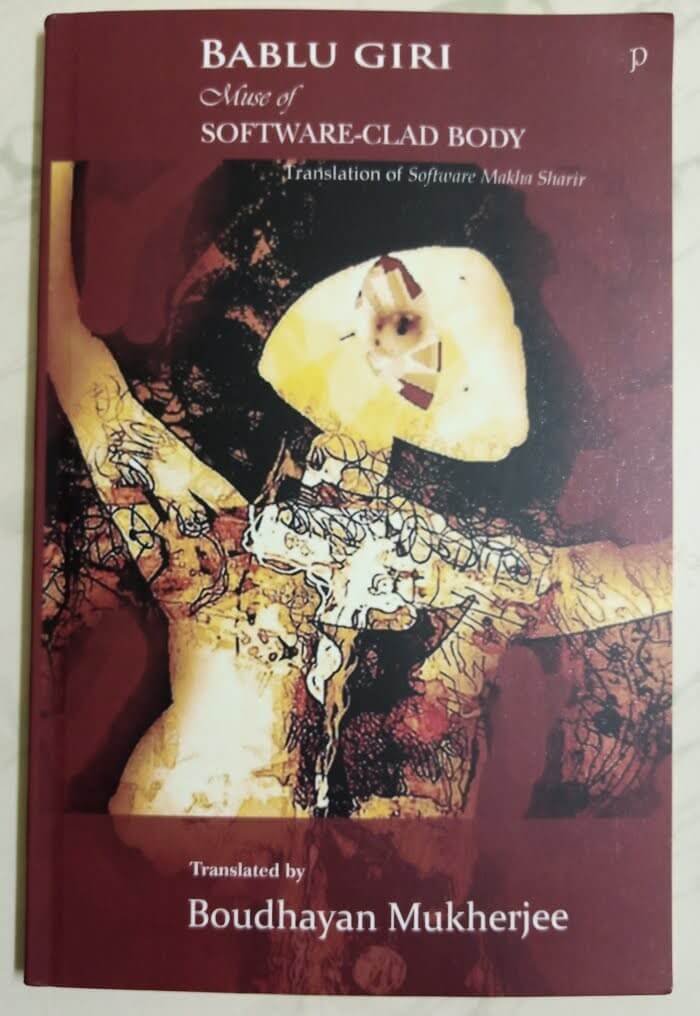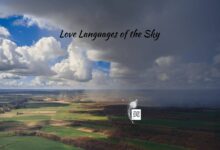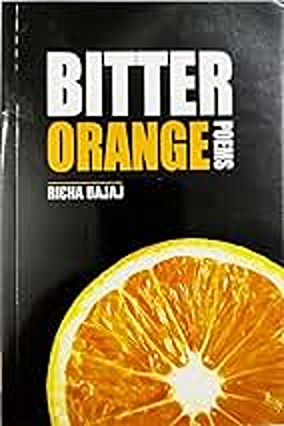n a review for Different Truths, Dr. Santosh explores “Muse of Software-Clad Body,” a book that blends science, philosophy, and art through the concept of organic software.

Reading Muse of Software Clad Body[i] was a uniquely enriching experience for me.
Dedicated to all thoughtful readers and connoisseurs of avant-garde literature, it is a book to be devoured and cherished. This immersive, thought-provoking journey, intriguing, and often intellectually stimulating, exhorted me to stop and ruminate, making me feel the silent turbulence of the world. The erudite editorial note and the foreword by Boudhyan Mukherjee throw ample light on the extraordinary nature of the book.
In her Editorial Note, Sreetanwi Chakravarty puts it eloquently:
“The brilliance of any poet is an alchemy of emotion interwoven into words, an artistry transcending mundanity. Each verse of Muse of Software Clad Body displays a tapestry of raw sentiment, painting life’s nuanced hues on the canvas of existence.
Through metaphors and cadence, Boudhayan Mukherjee’s translation of poet Bablu Giri’s Software Makha Sarir has unveiled truths hidden in whispers, immortalizing fleeting moments in eternal lines. Mukherjee and Giri’s mastery of language orchestrates symphonies of the soul, evoking empathy, sparking revolutions in thought-
Today, in the annals of an elderly person, I find an inertia of eloquence. Let my bosom be the heart of the world.” (Mukherjee 11). With a stroke of his pen, he captures the ineffable, crafted beauty of chaos. In Giri’s verses translated, we find solace, enlightenment, and a mirror reflecting human experience, echoing through time, touching the core of our humanity.”
The phrase ‘inertia of eloquence’ enchanted me, and to my absolute joy, I found that it is with an effortless elegance that Mukherjee has immortalised transient moments.
I read on riveted, realising that the verses of Bablu Giri soothe, stimulate our senses, and touch the essence of universality. Mukherjee has done a commendable job of translation.
She further says, “Through lines that are impregnated with the ideas of organic software, hardware, algorithms, and chromosomes of life, it flirts with eternity, encapsulating fleeting instants as immortal whispers. More than offering us the profound knowledge of creation, regeneration, and the cycle of birth, death, love, and existence, the book is a thought-provoking journey the readers can amble, look beyond the barriers of the usual, common, and mundane, and discover a mysteriously haloed world that pulsates with silent chaos: The book is a reader’s paradise, an explorer’s choice destination.”
As we turn page after page, we find words conveying truths cutting across eras, triggering the curiosity of the readers, and leaving them in a mood of serious introspection.
Mukherjee is right when he says, “I was drawn towards the translation of this book of verse because nothing of this kind has been tried before.”

He says, “This is a book of non-conventional poetry. The effort is unique because it has surpassed the boundaries of literature to prove a scientific hypothesis.”
As a Parthian shot, he adds, “Translation is after all a marriage between two languages. Here, the Bengali bride was presented to me for the English groom that I’ve ushered in as a matchmaker.”
The original book in Bengali, “Software makha sharir,” authored by the eminent Bengali poet cum literatuer Bablu Giri, comprised a string of forty-six poems like a long verse. Each poem focusing on the central theme, in tandem with the engrossing scientific hypothesis, was well-appreciated by the readers and called a game changer in the field of poetry.
Though a science student, Giri, is an intent reader of Vedas, Upanishads, Bhagwat Gita, Puranas, and Sanatan philosophy. While reading these texts, he started thinking that every object and life in the universe is akin to unique software just like we have in our computers, for smooth performance of various activities.
We have now built a supercomputer that will do sums very quickly, which otherwise would have taken years to solve. Therefore, it follows that organic software will automatically exist. Every living creature is a combination of external organic hardware within whose fold exists organic software, like a cat that is born with its traits, mews, and prefers to eat food of its own choice, every living being and non-living object behaves similarly. Even this great universe is organic software.
With this hypothesis, the new poetry world in this book has evolved and spread its wings in myriad branches and directions of ultra-modern and ancient science, arts, philosophy, mythology, epics, and the latest developments of the digital world.
“The poetic version has aimed to establish that this universe is a unique construct of a supercomputer as well as organic software.”
Substantiating his thesis by the argument that the American business tycoon Elon Musk is engaged in developing advanced brain-machine interfaces to revolutionize human communication and cognitive capabilities, called Neuralink, an implant that can monitor and stimulate brain activity by implanting remotely controlled electrode chips in the brain itself.
So, he reiterates that the “organic software of the living body is a genuine phenomenon that is in the process of being replicated by man-made software.”
“But why have we resorted to poetry to express a complex scientific treatise?” He asks and maintains that “here lies the acknowledgement of power and the vast scope of poetry. But the enchantment of the muse serves not only as illumination of uncharted vistas of knowledge, but it also provides the joy of creation. Each poem in this anthology is a riveting discovery. Each one can also be read as a separate entity. The poems traverse our entire planet, the genesis of it, the birth of early living creatures and their habits, the appearance of human creatures, the wonders of our flora and fauna.”
“Then the poems travel to the beauty of outer space, the millions of planets and stars, and the infinite mysteries of the creator … who is not God … but a Supercomputer who remotely controls the entire universe, with a Big Bang here and there and black holes whenever destiny arrives.”
I cannot resist the temptation of reproducing a few important verses of the book, to whet the appetite of the reader.
“I am searching for those dictums, words and symbols. Searching too the ancient root, Where the archives of your organic supreme computer’s mouse and cursor is kept in stock” (1; p 12.) “Cat or dog or every item on this earth is nothing but a software construct.” (2 p. 14) “Only the poet’s creation will be without any software A galaxy of words, a treatise of evolutionary civilization” (2; p. 14). “That grand organic computer stands as a form of Universe. He is smaller than a micron and larger than the largest macron. He remains as the software tucked inside the body of hardware. In such a way, I have become letters, words, and sounds. I’ve become that grand poet, Who composes life love and civilization.” (3; p 16.) “I have come here for a few days in the festive carnival. In another poetic birth, I shall be reborn in some other domain Old scenes, which provided joy and excitement, “will pass into oblivion, in evolutionary change. Only I will remain alone as a reclusive poet To pen the secret story of growth and obliteration (13; 34) “We are all zeros, only a moment’s vain glory. But to survive, I’ve given sharp claws to someone (16; p 36)
He says it is sad that God has been tied to religion, and wonders why Hindus, Muslims, Christians, and Buddhists have been kept apart.
He beseeches: “Come let’s search for the coded signals The language of organic software Let us arrange words and construct The poetic words, a bouquet of words for gift to God.” 21; p 46. He cajoles: “Come closer to sounds, love them. Adoring words, poets create muse; Ask them to turn them into music, bird songs Brushing against stones, words can ignite fire. 21; 47. “The spoken words change into written scripts Let drinks pour down to wipe out war, hatred, death Let humans be blessed with immortality Let the software of eternal universe blossom.” 22; p 48.
Let me conclude by adding my words to Editor Sreetanwi Chakraborty’s words that “The book is a reader’s paradise, an explorer’s choicest destination.” While reading the book, I did not want to be just a sojourner here, but to continue lingering here, breathing, inhaling, exhaling, savouring every word and the inherent nuances.
I am so happy that this translation happened, because not only did I enjoy every word, but it also widened my horizons, and kept me hooked till the last page.
The poet is a weaver of words, prompted by software magic; muffled words erupt from the inner recesses of his soul, a clenched fist rising in protest. Alas, humanity is alienating itself from the all-pervasive beauty – the sounds and smells of nature. The poet hunts for dreams to transform the worldly hues and is convinced that dawn will surely arrive.
It is the poet’s powerful words, and software genetics that generate seeds of all existence; his words have the power to expunge hatred, stop the fight between mosques and temples, and scribble scripts seeped in love, sweetness, and bonhomie.
“Colour me with all the hues of the universe Dip me in the pool of a colourful world.” 33; 69 "Thereafter, I become God. I am the past, now and future of eternity. 46; 93
The software body gifted to us, has been tainted by a virus, and that virus needs to be removed, only then will we move from darkness to light, and the poet will be transformed into an epitome of God, creating, and recreating the music of Orpheus, Tansen, and the flute on the banks of the Yamuna. He will become the scholar gypsy searching for knowledge, and he will update the software body with his newfound knowledge.
“I emerge as the great poet of words. Come touch my supreme computer body. Be fulfilled by the virtues and beauty of the software self.” 46; p 96
This book needs to be read, reread, and discussed at length.
Kudos to the writer, translator, and publisher for this excellent book.

[i] Translation of Software Makha Sharir by Bablu Giri
Translated from Bengali to English by Boudhayan Mukherjee
Cover photo sourced by the reviewer.




 By
By
 By
By
 By
By
 By
By